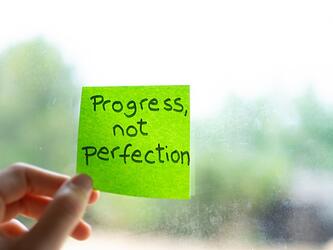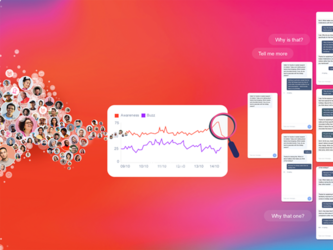Reflections from the front line of market research
As a CATI interviewer for a number of major market research agencies over the past three years, I am a veteran of the data collection front line. I use that term, with its militaristic overtones, deliberately – doing the job, you are often battling to overcome people’s reluctance to take part in surveys or their annoyance that you’ve dared to call. But mostly the struggle lies in trying to balancing attention to detail and accuracy with common sense and the human touch.
When I first became a telephone interviewer, the concept of processing human beings into statistical data was a bit of a surreal one. Surveys often feel oddly disassociated from the real lives of the people they are assessing, and the questions are sometimes hilariously opaque. One 45-minute consumer omnibus survey that I conducted asked questions concerning brand opinions, then half way through inexplicably asked ‘Is your home situated on a hill?’. My theory is that it was thrown in to keep the respondent awake. From the telephone interviewer’s perspective, such seemingly esoteric questions on unrelated topics do little to help respondents understand the purpose of the research and remain engaged.
If market research is designed to be a window into society, and the data is the reflection, I feel as though I have been exposed to the first-hand view
But that’s just one of the job’s unavoidable exasperations. Much like going an entire day without a single response to a survey only to have someone enthusiastically agree to take part five minutes before the end of the day, except they then put you on hold and mysteriously dissolve into the ether as if they were a desperate figment of your imagination.
Every so often a project manager might drift through the room asking you to interview ‘just females over 21’ or ‘males or females under 60 only’ or a piece of paper materialises on the desk reading ‘screen for: females, under 30, in social grading category B or above, car owner, unmarried, reads a broadsheet newspaper, lives in a bungalow and owns a Labrador’ or a similar unlikely-to-find combination. On one particular day I was asked to only interview males under 45 before discovering that it was the day of the World Cup semi-finals.
There are certain people who must walk around like ticking time bombs, because the second they receive an unwanted phone call they boil over into a spitting rage. It becomes a game to see if they can break your veneer of polite composure. I tend not to blame them. There’s something quite un-British about asking personal questions to strangers. And in a way, you feel as if you have served some sort of cathartic purpose for them.
Similarly, there is always the occasional respondent for whom at that moment in their life you are the sole person in which to confide their woes. Market research can be a kind of therapy. Approaching someone anonymously in their own home can be a way of opening a safe space for them to speak with emotion and authenticity. I have spoken to many elderly people who struggled to understand the structure of the survey and hesitated at length on every question but who are always my favourite respondents to deal with. They are usually receptive, want to be listened to and are eager to engage in perhaps the only conversation they’ve had all day.
As an interviewer I feel as though I have been privy to many people’s lives. It is often surprising what people will reveal. If market research is designed to be a window into society, and the data is the reflection, I feel as though I have been exposed to the first-hand view. Sometimes the things people say during the rapport between the questions paint a more colourful picture than the black-or-white responses the questions allow. Survey data is always an approximation of much more complex human truths.

We hope you enjoyed this article.
Research Live is published by MRS.
The Market Research Society (MRS) exists to promote and protect the research sector, showcasing how research delivers impact for businesses and government.
Members of MRS enjoy many benefits including tailoured policy guidance, discounts on training and conferences, and access to member-only content.
For example, there's an archive of winning case studies from over a decade of MRS Awards.
Find out more about the benefits of joining MRS here.













1 Comment
Mariam B Hassan
15 years ago
This is so true. You just translated my feelings in to words.
Like Reply Report